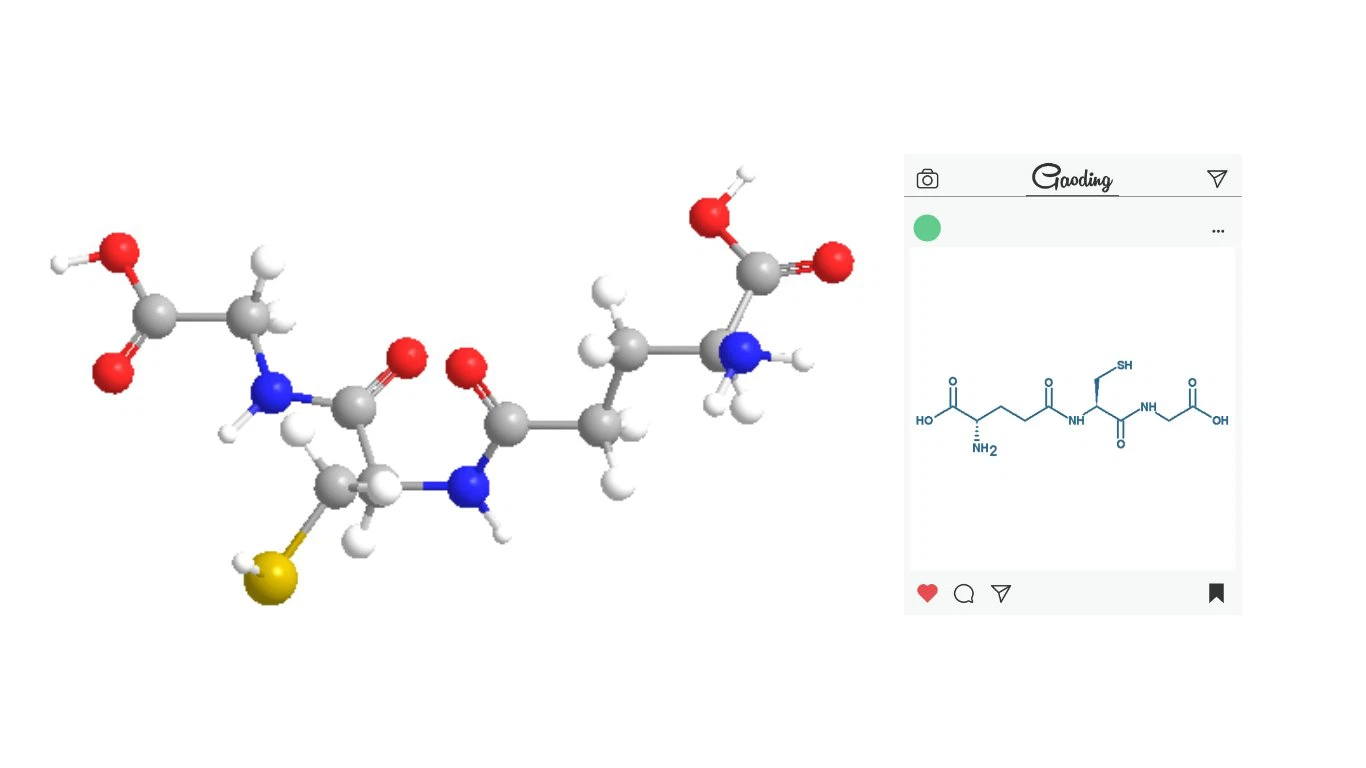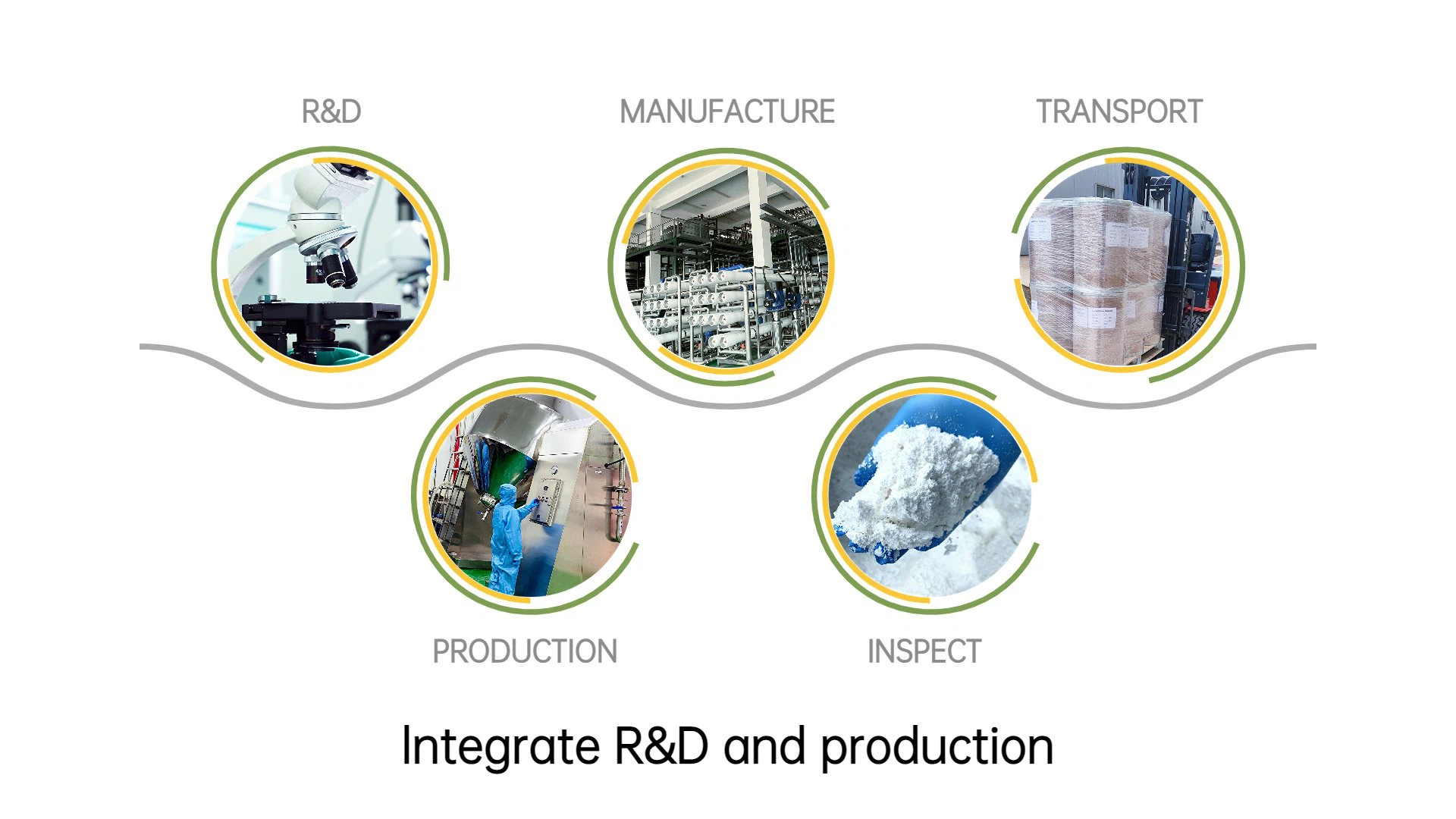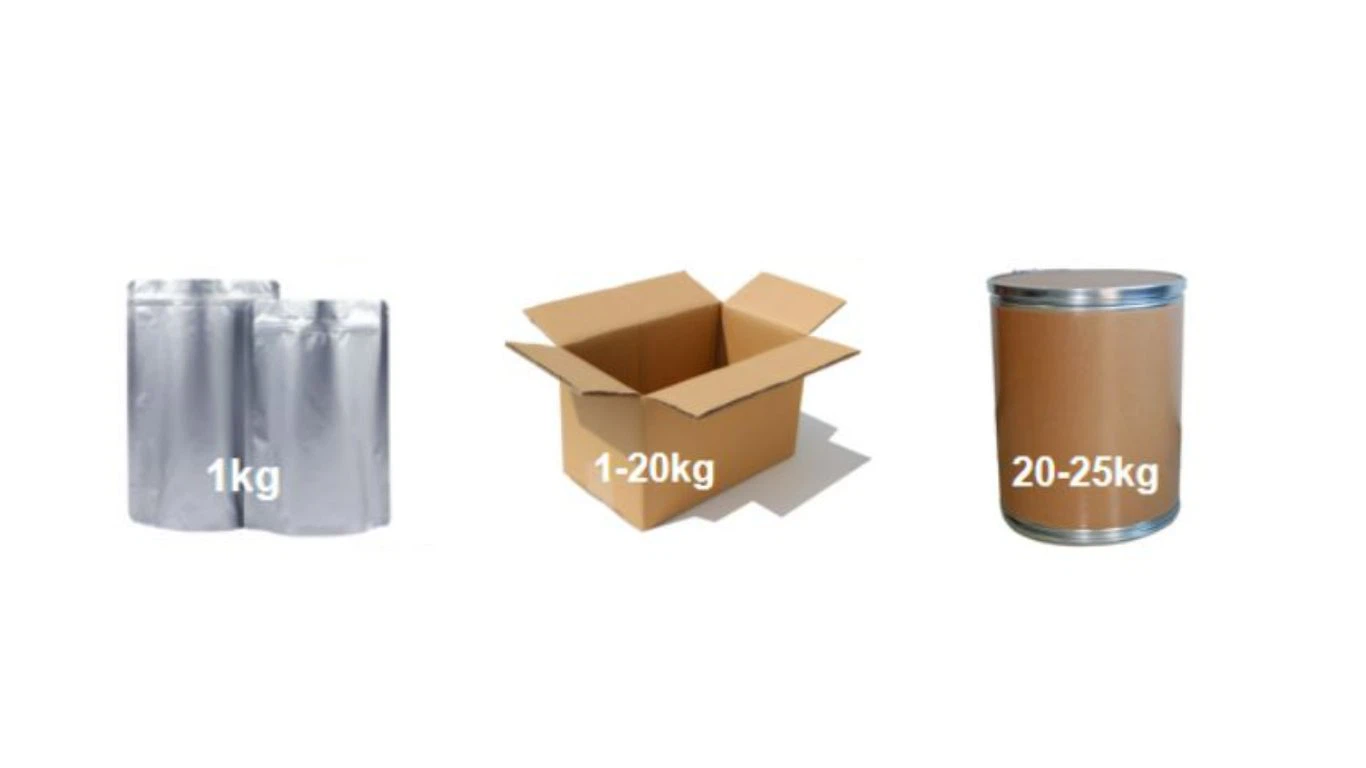

Description
CAS:70-18-8;Assay:99% min
CAS NO.:70-18-8
Brand:GSHWORLD
Glutathione bulk powder raw material - NMN suppliers & manufacturers in China.
In the human body, glutathione mainly plays the roles of fighting free radicals, detoxifying exogenous substances, reducing vitamin C, protecting DNA, regulating cell proliferation and apoptosis, regulating immune function and fibrogenesis. Better than general antioxidants.

L-Glutathione Reduced(C10H17N3O6S) | |
CAS | 70-18-8 |
Appearance | White or almost white powder |
Assay | 99% min |
Chlorides | Not more than 200 ppm |
Sulfates | Not more than 300 ppm |
Ammonium | Not more than 200 ppm |
Iron | Not more than 10 ppm |
Arsenic | Not more than 2 ppm |
Heavy metals | Not more than 10 ppm |
Cadmium (Cd) | Not more than 1 ppm |
Lead (Pb) | Not more than 3 ppm |
Mercury (Hg) | Not more than 1 ppm |
Sulfated ash | Not more than 0.1% |
Loss on drying | Not more than 0.5% |
Shelf Life | Two years when properly stored. |
Imbalanced glutathione is often associated with a variety of diseases, such as cancer, aging, cystic fibrosis, cardiovascular, inflammatory, immune, metabolic, neurodegenerative diseases.
Glutathione has a variety of biological effects, can scavenge free radicals in the body, and has obvious curative effect on organ damage caused by chemotherapy and drugs. The sulfhydryl group of reduced glutathione can combine with oxygen free radicals to promote the synthesis of related enzymes. Accelerating the excretion of free radicals can also inhibit the release of inflammatory factors, and supplementing exogenous reduced glutathione can reduce free radical oxidation and inflammatory responses.
Glutathione combined with hemoperfusion therapy can improve multiple organ damage in patients with septic shock and help to promote the recovery of organ function. The reason may be that glutathione containing sulfhydryl can be used as a natural antioxidant in cells. By combining peroxides and free radicals, it accelerates the excretion of free radicals, participates in the redox process in the body, and antagonizes the damage of sulfhydryl-containing enzymes in cells by antioxidants. It can reduce the damage of free radicals to important organs such as the heart, liver, kidney and gastrointestinal tract, and change the pathophysiological process.



+86-755-23577295
+86 18718790084
Room 832, Building 12, Shenzhen Bay Science and Technology Ecological Park, Yuehai Street, Nanshan District, Shenzhen China